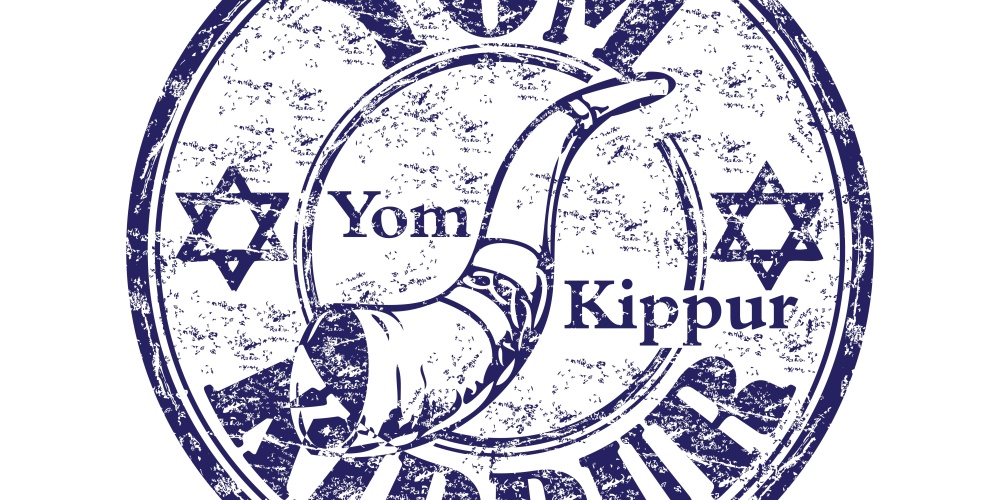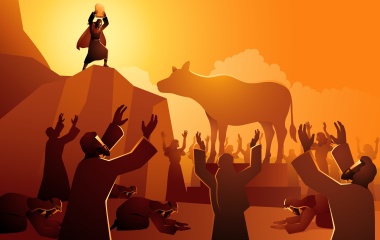
Yom Kippur is a means to an end. We spend the day in shul, confess our sins, plead for forgiveness, abstain from food, drink and all physicality, though not because these are the goals of Yom Kippur. Rather, they are the means that our tradition teaches can help us become better people. As our Sages state, “the reward for a fast day is tzedakah, charity” (Brachot 6b). It is by experiencing hunger ourselves that we are meant to develop our sensitivity to the many who don’t have enough food every day. We fast so that we can help feed others.
As important as the 10th of Tishrei is, the 11th of Tishrei is even more important. A quick perusal of the al chets, the double alphabetic acrostic listing a litany of sins brings home this point. We mention many sins we may have or may not have transgressed and leave others out. Can it really be that we sin twice for each of the letters of the alphabet?
Moreover, many of the sins listed are those between person and person, sins that G-d is unable to forgive on Yom Kippur – or any other time. One can fast from today until next week and bang one's heart a million times but only a victim of our misdeed has the power to forgive. We say the al chets to remind us of possible transgression we may have committed and to inspire us to reconcile with those we have hurt. That can and should be done even, or shall we say especially, after Yom Kippur.
If Yom Kippur is a day of motivation, we need to ensure that we are in the correct frame of mind to guarantee its success. What that frame of mind that might be and what it is that is inspirational will vary from person to person. The rules and regulations of the day coupled with the machzor, give us the framework, but each person must focus on what is most meaningful to them. For some it might be coming together with so many other Jews, for others the re-enactment of the service of the High Priest in the Temple. Others may gain inspiration from reading about the asara harguei malchot, the heroism of our martyred sages. For others it is the beautiful liturgical poetry, the recital of Yizkor and linking to generations past, or perhaps it is the rabbi's sermon that gives great meaning to the day.
For some, focusing on what one has done wrong may be motivating as it triggers remorse and resolve. For others, it is a “turn off”, even depressing and unlikely to have much positive impact. This, I presume, is the reason that in certain communities the custom was to race through the al chets as quickly as possible, whereas in others it was said slowly with much concentration.
In the 19th century, Rav Yisrael Salanter recognized the need for greater emphasis on ethical development and personal growth. He thus founded the Mussar movement to do just that. But how can one encourage one to change for the better? There is not one motivational tool that works for all. Some need encouragement and some need chastising. Some are motivated to do better through positive reinforcement whereas others need to be berated. Tired of falling short of expectations, they are motivated to try harder to do better.
These two approaches were reflected in the mussar schools of Slobodka and Novordick. In Slobodka, students were told how great man is. As bearers of greatness, one must strive to live up to these lofty expectations. On the other hand, in Novordick, they taught the lowliness of man; only through deep soul searching and examining one’s faults could one grow higher.
It seems to me that we live in a generation where it is the approach of Slobodka is needed. Hearing about our sins over and over again does little to motivate but may do much to deflate and discourage.
It is in this vein I would like to share a “positive vidui, confession" composed by Rabbi Avi Weiss, highlighting all the wonderful things we have done over the course of the year. This is a most beautiful confession to add to our Yom Kippur prayers.
We have loved,
We have blessed,
We have grown,
We have spoken positively.
We have raised up others,
We have protected,
We have acted enthusiastically,
We have shown empathy,
We have cultivated truth.
We have given good advice,
We have shown respect,
We have learned,
We have forgiven,
We have comforted,
We have been creative,
We have stirred,
We have acted,
We have been just,
We have longed for the Land [of Israel].
We have been compassionate,
We have given full effort,
We have supported,
We have contributed,
We have repaired.
אָהַבְנוּ,
בֵּרַכְנוּ,
גָּדַלְנוּ,
דִּבַּרְנוּ יֹפִי
הֶעֱלִינוּ,
וְחַסְנוּ,
זֵרַזְנוּ,
חָמַלְנוּ,
טִפַּחְנוּ אֱמֶת
יָעַצְנוּ טוֹב,
כִּבַּדְנוּ,
לָמַדְנוּ,
מָחַלְנוּ,
נִחַמְנוּ,
סָלַלְנוּ,
עוֹרַרְנוּ,
פָּעַלְנוּ,
צָדַקְנוּ,
קִוִּינוּ לָאָרֶץ
רִחַמְנוּ,
שָׁקַדְנוּ,
תָּמַכְנוּ,
תָּרַמְנוּ,
תִּקַּנּוּ



